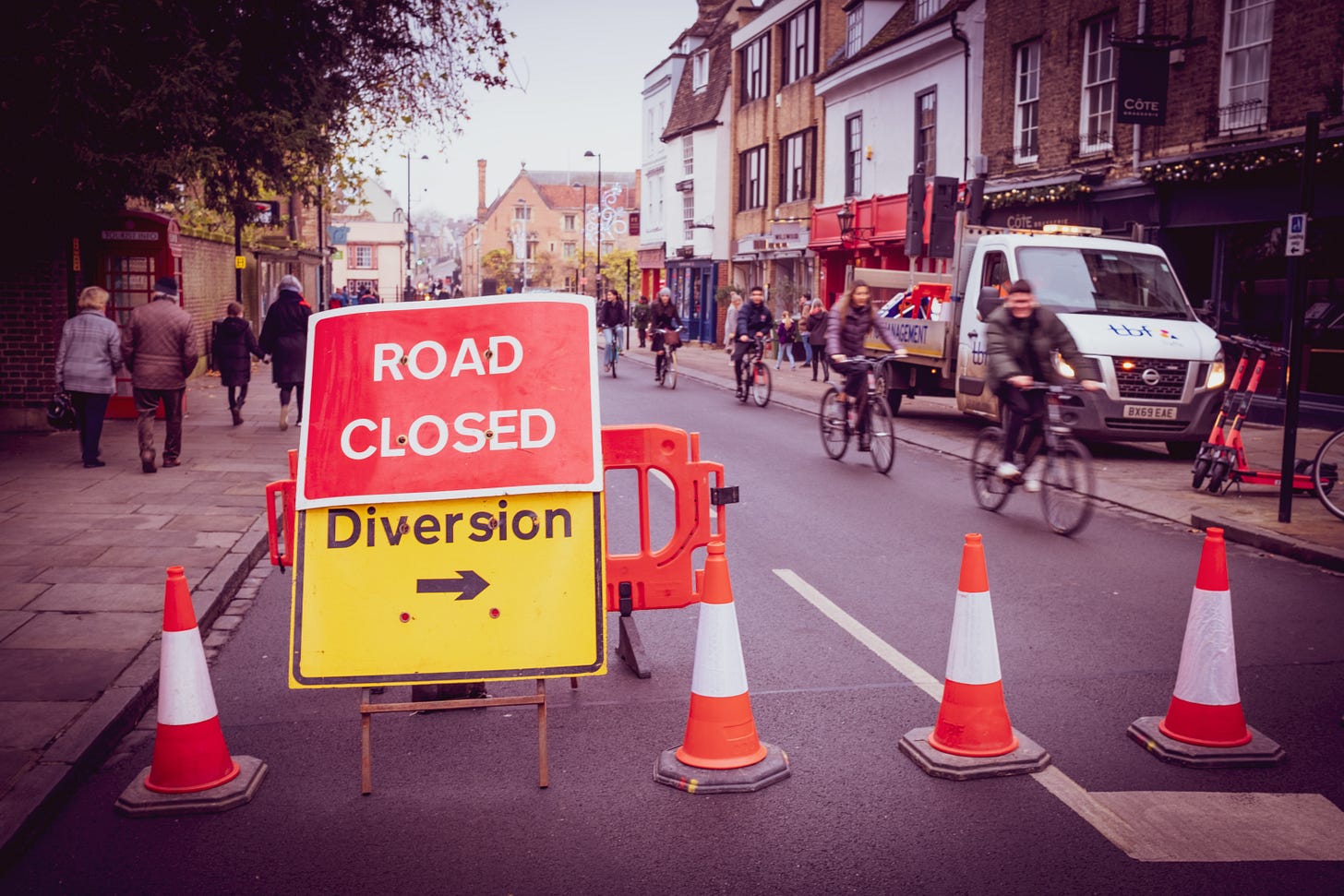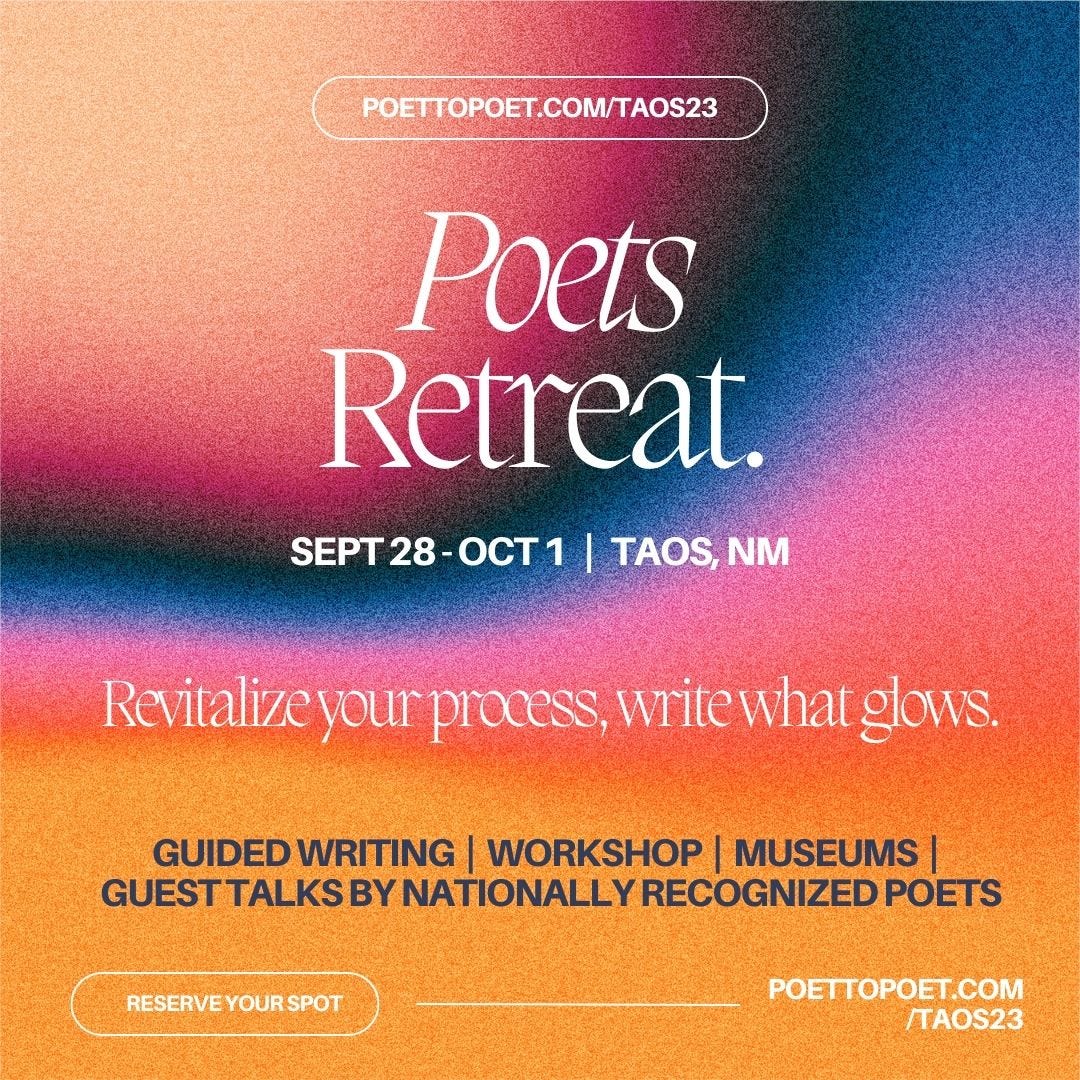Photo by Ben Wicks on Unsplash
This week I’ll be at LitFest 2023 at the Lighthouse Writers Workshop. If you’re in the Denver area, I hope to see you there!
Growing up, although my family didn’t have much money, summers were magical. I had everything I needed between the library and a roll of butcher paper we kids used for our projects, from made-up board games to little books. When I was six or seven, I wrote and illustrated my first book on that butcher paper—“The Bag of Bones.”
I get nostalgic for those days of unlimited reading and creative time. For most of my adult life, summers have actually been busier than other times of year (with kids and jobs and teaching and … ALL THE THINGS), but I still uphold the mistaken notion that summers are for creative work. They often aren’t.
This year, it isn’t just summer busyness for me. I started 2023 with a packed schedule and thought surely by April it would start to open up. But it’s June and I’ve barely had a whole weekend that I haven’t worked on one business project or another.
I used to get down on myself in times like these, when creative work comes to a screeching halt, but I’ve been straddling busy-ness and creativity for so long, I’ve learned how to adapt.
Don’t worry. This isn’t one of those smug posts where I tell you to “just make time” or to “get your priorities straight” in order to have a more creative/more fulfilling/more productive writing life. Nope. If you’re feeling chronically over-scheduled, I get it—I so get it.
9 ways to reframe a writing halt
First, don’t write. I mean, don’t pressure yourself to “get down to it”—to the kind of working in words that results in something that you would share with another human being. Number one, you’re off the hook for anything resembling a “draft.” Phew.
Don’t not write. I mean, keep some corner of your mind open for thinking about writing and experiencing your days as a writer. You are a writer, you probably can’t help yourself. If you can manage it, jot a note when you encounter something useful or strange or intriguing. Any method that is portable: sticky notes, index cards, notes apps, voice memos, napkins, the back of your hand.
Start your day by reading your own work—a poem you’ve finished, nearly finished, or are currently working on. Don’t revise. Just read it. Just bathe in the language. I leave drafts on top of my laptop so that I will see them first thing. Believe me, my instinct is to plunge straight into the day’s tasks, but I try to pause and read the poems just to remember that they are still there.
Explore areas of curiosity that feed your work (for me those are art, physics, geology, history). Right now, I have a book on Georgia O’Keeffe’s watercolors, Marie Curie’s biography, and Roadside Geology of Utah on my desk. Sometimes I jot down notes, but oftentimes I just poke around in them like a star-nosed mole sensing my way through the dark, feeling nourished and lost at the same time. Writer-me loves that feeling.
Read poetry selectively—and not too much or you might start feeling that you’re not a real writer while the writers you are reading are. Especially avoid consuming too many literary journals and poems-of-the-day and poetry podcasts. I love these. I do. I consume too many of them, probably. But I know they don’t help me listen for that voice of my own that, if I’m quiet, will suggest the starting image or a line or a word for my next draft.
Devote yourself to the smallest writerly tasks, like gently working on poems that need modest revisions. Or just look at titles or opening lines in your drafts. Don’t try to tackle everything, and know that it’s OK to change nothing at all.
Seek out places that remind you of poems you’ve written. For example, there are a few local hiking trails that have sparked poems for me. When I hike those trails, I remember: Oh yeah, this place will “spoke” to me. And, that’s comforting, even if I’m not “hearing” anything new currently.
Spend time with people who know that you’re a writer and cherish that you write. Maybe this is a writer’s group, or maybe those people are not writers themselves but they care about how much you care about writing and they will check in with you about it. The point isn’t to berate yourself in front of them; just acknowledge how hard it is to write right now and how much you long to get back to it. Let them support you in that.
If it’s at all feasible, schedule a couple hours in the not-too-distant-future that you can do some or all of the above without too much interruption. Write yourself a mental health permission slip and get out of the house to a park. Some writers I know just sit alone in their car. Point being, it doesn’t have to look anything like “writing.”
Finally, if you’re still giving yourself the “just make time” speech, give yourself full permission to quit that. That advice won’t work, even if it sometimes works for others. I don’t know many for whom it has. Writers who genuinely succeed at applying that approach usually have vastly different life circumstances than mine or yours. Sorry, but it’s true.
“Make time” works only when you have time (duh!), when the schedule isn’t bursting with should-have-done-yesterday tasks related to our responsibilities in life— financial or familial or both. It’s truly unkind to expect yourself to “make time.” So ditch that mantra like the bad advice that it is.
What are your strategies for writing when you’re too busy to write? Share in the comments.
Upcoming Events / Poet to Poet Community
Fall 2023 Poets Retreat in Taos—just announced!
This fall, join practicing poets for creative renewal in Taos, New Mexico. Enjoy three full days of guided writing, art tours, daily workshops, and guest author talks by nationally recognized poets. Space is limited. Learn more and reserve your spot at the link below.
The Poets Circle: Drop-in Conversations
JUNE: The Shapes of Things—On Form
June 21, 12-1pm MT
How do you work with the principle of form in your poems and in your manuscript? Is form a generative force, a guiding principle for revision, or both?
JULY: Iteration—Toward Completion
July 5, 6-7pm MT & July 19, 12-1pm MT
How do you know when a poem or a book is done? What does "complete" mean?






I deliberately switch to "input" and rest when I'm too unwell or booked out with obligations to "output". And re-reading my own work often feels delicious.
Also, getting into nature and on non-writing art adventures refuels my inner Artist's cornucopia.
Another thoughtful post. I haven't been writing for several months now, but I have been reading. I'm comfortably resting in the knowledge that the writing will be there for me when I'm ready, but I will say that it's easier for me to be comfortable knowing that this fallow period is of finite duration.